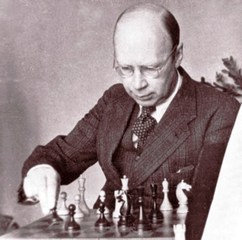|
Back
War And Pieces New York
Isaac Stern Auditorium, Carnegie Hall
05/07/2016 -
Sergei Prokofiev: Piano Sonatas No. 6 in A Major, Opus 82, No. 7 in B-flat Major, Opus 83, & No. 8 in B-flat Major, Opus 84
Yefim Bronfman (Pianist) 
Y. Bronfman (© Dario Acosta)
A shrink from another planet might would say that Yefim Bronfman has to cure himself of his Sergei Prokofiev obsession.
This listener would reply, “Wow! Yefim Bronfman is playing all the piano sonatas? And all the violin/piano sonatas? And hopefully will do all the Prokofiev concertos?
“Well, one pianist’s obsession is another person’s heavenly endowment.”
Naturally, this is no obsession. Yefim Bronfman has been performing Prokofiev since he started studying piano in Tashkent, and has been triumphing since that time. Nor is that any wonder. Prokofiev needs utmost strength, dynamic volition, incredible steely technique–and when necessary, almost unearthly sensitivity.
Granted, the composer at times seemed almost ashamed of that gentleness, and could quickly cut to the loudest fffff down in the bass, along with some unearthly runs up the piano.
All of which seemed like a day at the office for Mr. Bronfman. Last night, three “war sonatas” (Prokofiev’s own term for the works written in 1939, 1942 and 1944) the pianist strode on stage, barely looked at the audience, started that quirky opening phrase for the Sixth Sonata and played through two more, as well as a Romantic encore.
If his face showed little emotion, if his body remained stolid over the keyboard, the fingers did all the work.

S. Prokofiev (© Sergei Prokofiev Foundation)
After all, Prokofiev didn’t ask for undue personal emotion in his work. Like the grand chess player which he was, he might have thought that pianists were the competition for composers. Let them work out the problems for themselves. The music will take care of the rest.
Thus this Sixth Sonata, my own favorite, could keep us disconcerted, almost annoyed with all the virtually impossible piano-playing. Yet Mr. Bronfman apparently didn’t think those double-notes, the arpeggio sweeps, the percussive fist-pounding chords were any problem. In fact, he took the first movement without that undue Prokofiev acerbic touch. He played the second two movements with the simplicity of the composer’s Grandmother’s Tales, only whipping up the emotions with the finale.
Probably the Seventh Sonata is the most popular of the three, and Mr. Bronfman dexterously gave those outer movements all the zing and flurry and crazy technical prowess that they deserved.
With virtually every other modern pianist, one feels the difficulty, revelling less in the music than the Olympian strength needed to give it meaning. Yefim Bronfman reverses that concempt. He has an unerring ease in his work, his legato passages need little pedalling, his pounding percussion is an inevitability, and that so beautiful second movement in the Seventh Sonata was played here like a litany.
Perhaps some listeners would prefer to think of the sonatas as an Augean stable of difficulties. But Mr. Bronfman obviously thinks of them as musical constructions, their challenges only tools to make the emotions come vibrantly alive.
In a way, I wish he had started with the Eighth Sonata, which is perhaps the least successful. The composer’s own hands were failing by 1944, and while he probably didn’t compose from the piano, he seemed to make an effort to give this work “difficulty”.
Thus, Mr. Bronfman started the most lyrical discretion, segueing easily to the more difficult canonic central section. The Andante sogando was not played “dreamily”, but was given a little Baroque dance rhythm, quite fitting for the piece.
And the finale, with all the dynamic Prokofiev toccata fury, ended with that rainbow-like second theme of the opening. It was as if Prokofiev–as translated by Bronfman–was saying to the Carnegie Hall audience–”Yes, this music is as dangerous as it is exciting. But now, let’s allow a few rays of balmy sunshine. My three visions of war have come to an end. Since the Steinway and my digits need a respite, I’ll play the Schumann Arabesque to cool you down, and then we can take a walk in the park.”
Harry Rolnick
|